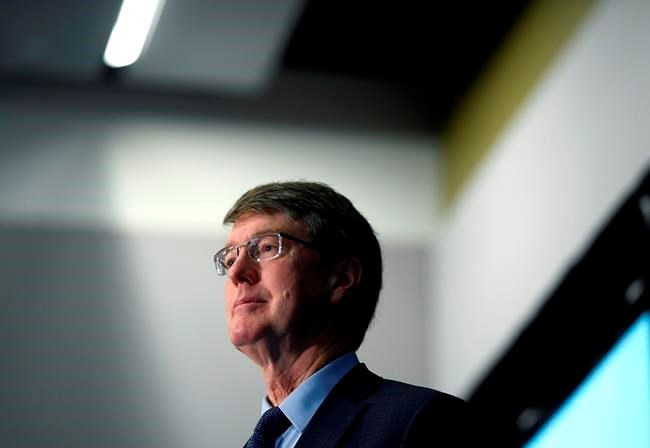OTTAWA — A senior official at the Bank of Canada says central banks should have their own digital currency ready as an alternative if they decide to say no to one being developed by Facebook.
The social media giant has spent the last 16 months or so developing a digital currency it calls Libra.
Facebook's foray into the digital currency market could help marginalized populations become part of the global economy and improve cross-border payments, Bank of Canada deputy governor Timothy Lane said Thursday.
But if regulators decide to block Libra's use in a given country over regulatory or oversight concerns, Lane said a central bank should have its own digital currency ready for people to use.
He said the issue policy-makers are dealing with is how to regulate something that would be available to every one of Facebook's users, and overseen by an association of companies headquartered in Switzerland.
"That's the nub of the question: whether the answer is Libra or whether it's something that central banks do," he said during an online panel.
"If we're saying, well, it should be (central bank digital currency) not Libra, then we have to have something ready so that if a decision were taken that central bank digital currency is the way to go, we would actually be ready to launch it."
The Bank of Canada has been developing its own digital currency at what Lane described as "a good pace," one of a number of central banks doing the same kind of development should the need arise to issue one.
The Bank of Canada doesn't have the legislative authority from Parliament to offer a digital currency, only to design, issue and distribute the bills stuffed inside wallets and handed over a counter.
Lane said yesterday during a separate online panel that there was still no compelling case for central banks to immediately issue their own digital currencies, but noted again Thursday that circumstances are quickly shifting with Libra helping lead the charge.
"Libra in some sense, suggests that central banks need to get that thinking underway a little bit more rapidly than they have been doing," Lane said on the panel during the Central Bank Payments Conference.
What has made central banks take particular note of Libra is that once it is released, hundreds of millions of people could quickly start using it. It would also be considered a "stablecoin," backed by a basket of currencies and financial assets designed to make its value less volatile than other cryptocurrencies.
And as Lane pointed out, Libra also touches on multiple areas traditionally regulated in different ways, including the tokens generally regulated as a money market fund, designated dealers that are usually financial institutions subject to their own rules, and the digital wallets Facebook plans to use are subject to retail payments oversight.
The Financial Stability Board, an international group that counts the Bank of Canada and the federal Finance Department as members, recommended in a report this week that any Libra-like stablecoin be subject to all regulatory requirements before it could be used in a jurisdiction.
Julien Le Goc, policy director for the Libra Association, said the currency wants to follow a "regulated pathway."
"The progression here is not to disrupt the system or compete with it, but really to augment consumers payment optionality and to complete the system," he said on the panel.
This report by The Canadian Press was first published Oct. 15, 2020.
Jordan Press, The Canadian Press



